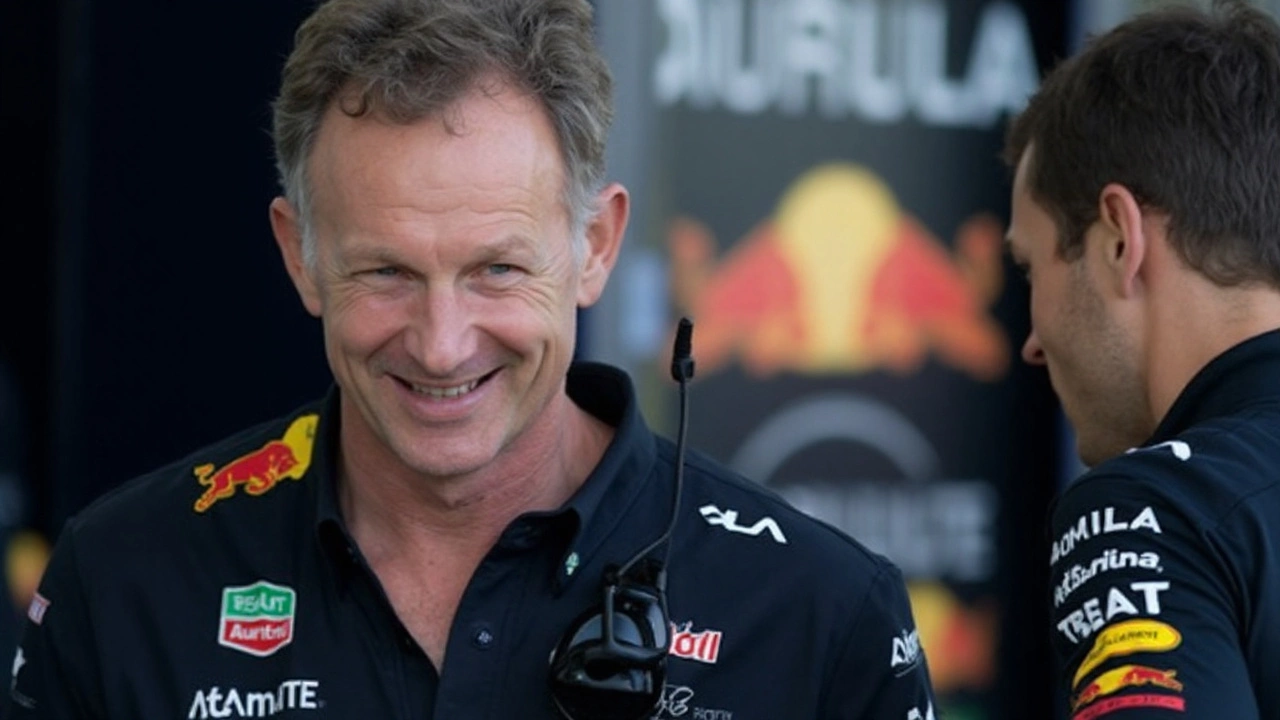Background: Horner’s decade‑long reign at Red Bull
Since taking the helm of Red Bull Racing in 2005, Christian Horner has overseen a transformation that turned a newcomer into a dominant force. Under his guidance the team captured four consecutive Constructors' Championships from 2010 to 2013 and added another three since 2020, largely thanks to Max Verstappen’s record‑breaking performances.
Horner’s tenure is marked by shrewd personnel moves, aggressive commercial strategies, and a close partnership with technical genius Adrian Newey. Together they built a culture where engineering brilliance meets decisive leadership, a formula that has kept Red Bull at the front of the grid even as rivals poured billions into their programs.
- Four straight Constructors' titles (2010‑2013)
- Three Drivers' titles with Sebastian Vettel (2010‑2013)
- Two Drivers' titles with Max Verstappen (2021, 2022, 2023)
- Consistent top‑three finishes in every season since 2010
Despite the success, the last two years have seen internal discussions about shifting responsibilities, especially as the company expands its motorsport portfolio with more focus on publishing and new racing projects.

What the £80 million payout could mean for F1
According to sources close to the matter, Red Bull agreed to settle Horner’s contract for roughly £80 million. The figure includes severance, non‑compete compensation, and a performance‑based bonus tied to the team’s recent championship tally. While Red Bull has not officially confirmed the amount, industry insiders say the sum is on par with the highest executive exits in the sport’s history.
The timing of the payout coincides with speculation about a possible restructuring of Red Bull’s motorsport division. Analysts suggest the cash outlay may be designed to free Horner for a new role—whether within the broader Red Bull empire, a consultancy position, or a move to a rival outfit looking for seasoned leadership.
If Horner becomes available, several teams could see a strategic advantage. A seasoned principal with an intimate understanding of both the technical and commercial sides of F1 could accelerate a struggling outfit’s resurgence. Conversely, Red Bull might retain him in an advisory capacity, keeping his expertise while allowing a fresh face to take over day‑to‑day operations.
Regardless of the next steps, the settlement underscores the massive financial stakes tied to top‑level management in Formula 1. It also highlights how teams are willing to pay premium prices to safeguard proprietary knowledge and maintain continuity during periods of transition.
As the sport heads into the next season, the ripple effects of this deal will likely surface in boardroom negotiations, driver contract talks, and the ever‑evolving battle for technical superiority on the track.
